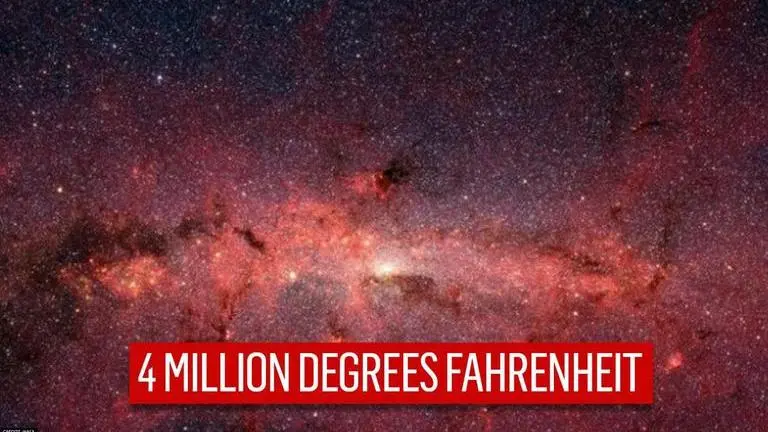Updated 12 November 2020 at 20:26 IST
Universe is getting 'hotter' as it gets older, a new research finds
Ohio State University Center for Cosmology and AstroParticle Physics probed the temperature of the Universe over the last 10 billion years.
- Science News
- 3 min read

The universe is getting “hotter and hotter" as it gets older, scientists said in a study published on November 11 in Astrophysical Journal after they examined the thermal history of our universe. Ohio State University Center for Cosmology and AstroParticle Physics probed the temperature of the Universe over the last 10 billion years and found that the mean temperature of gas has increased more than 10 times and has hit the alarming 2 million Kelvin or 4 million degrees Fahrenheit.
The research is based on the work done by Jim Peebles, a 2019 Nobel Prize in Physics for his work on the large-scale structure of the universe. Peebles asserted that the rising temperature of the universe is due to the fact that it changes over time, and as a result of the galaxies and galaxy clusters movement. “Our new measurement provides a direct confirmation of the seminal work by Jim Peebles—the 2019 Nobel Laureate in Physics—who laid out the theory of how the large-scale structure forms in the universe,” said Yi-Kuan Chiang, lead author of the study and a research fellow at The Ohio State University Center for Cosmology and Astroparticle Physics.
“As the universe evolves, gravity pulls dark matter and gas in space together into galaxies and clusters of galaxies. The drag is violent—so violent that more and more gas is shocked and heated up"—Yi-Kuan Chiang, lead author of the study said.
Advertisement
Man-made climate change no doubt. https://t.co/ovZDknDs2H
— Trent England (@trentengland) November 12, 2020
'Violent' gravity pull heats universe
According to the study, the gravity that pulls dark matter and gas in space together into galaxies and clusters of galaxies is so violent that it shocks and heats up the universe. Researchers conducted a study using a newly devised equipment that measured the universe’s gas temperatures, which was compared with the similar elements closer to the Earth and present time. Using the Planck and the Sloan Digital Sky Survey, scientists collected the properties of light data. Planck is the European Space Agency mission, that operates in collaboration with NASA that stores details of the light spectra from the universe.
The Astrophysicists used the technique of lengthening the redshift effect to estimate the temperature of distant objects by estimating temperature from the wavelength of lights. “We have measured temperatures throughout the history of the universe,” said Brice Ménard, a Johns Hopkins professor of physics and astronomy. “As time has gone on, all those clusters of galaxies are getting hotter and hotter because their gravity pulls more and more gas toward them.”
Advertisement
Published By : Zaini Majeed
Published On: 12 November 2020 at 20:26 IST
